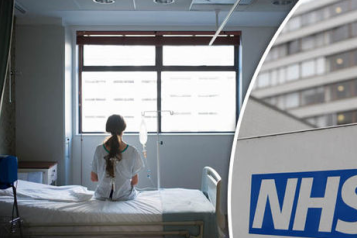Getting a second opinion about your care
Second Opinions and Martha’s Rule: What You Need to Know
Sometimes you may feel unsure about a diagnosis, have questions about a treatment plan, or simply want reassurance before making a decision about your care. In these situations, you may consider asking for a second opinion.
A second opinion is when another doctor or healthcare professional is asked to review your diagnosis or recommend a treatment plan. Many people find it gives them confidence and clarity.
Do you have a right to a second opinion?
The General Medical Council says doctors must respect a patient’s right to seek a second opinion.
However, you are not legally entitled to a second opinion on the NHS.
Even so, most doctors and GPs will support your request.
✅ What is Martha’s Rule?
Martha’s Rule is a new national patient safety initiative being introduced across England. It gives patients, families and carers the power to request an urgent review if someone in hospital is getting worse and they are worried.
Martha’s Rule is named after 13-year-old Martha Mills, who died from sepsis in 2021. Her parents repeatedly raised concerns about her deteriorating condition, but these concerns were not acted on.
A coroner later ruled Martha would likely have survived if her deterioration had been picked up and she had been moved to intensive care sooner.
How Martha’s Rule works
The rule will introduce three key changes:
Staff access: All NHS hospital staff must have 24/7 access to a critical care outreach team, who they can contact immediately if they are worried about a patient’s condition.
Family and patient access: Patients, their families, carers and advocates must also be able to contact the critical care outreach team directly, day or night. Information on how to do this should be clearly displayed in the hospital. They do not need to ask the current medical team first.
Listening to patients and families: Hospitals must introduce a routine system for gathering information from patients and families at least once a day about how the patient is feeling or whether they think things are getting worse. This will first apply to patients staying in acute and specialist hospitals.
Early results show this works:
Between September and October 2024, more than 573 calls were made by patients, carers and staff about deteriorating conditions. Half resulted in a clinical review and 14 people were urgently moved to intensive care.
Sometimes you may feel unsure about a diagnosis, have questions about a treatment plan, or simply want reassurance before making a decision about your care. In these situations, you may consider asking for a second opinion.
A second opinion is when another doctor or healthcare professional is asked to review your diagnosis or recommend a treatment plan. Many people find it gives them confidence and clarity.
Do you have a right to a second opinion?
The General Medical Council says doctors must respect a patient’s right to seek a second opinion.
However, you are not legally entitled to a second opinion on the NHS.
Even so, most doctors and GPs will support your request.
✅ What is Martha’s Rule?
Martha’s Rule is a new national patient safety initiative being introduced across England. It gives patients, families and carers the power to request an urgent review if someone in hospital is getting worse and they are worried.
Martha’s Rule is named after 13-year-old Martha Mills, who died from sepsis in 2021. Her parents repeatedly raised concerns about her deteriorating condition, but these concerns were not acted on.
A coroner later ruled Martha would likely have survived if her deterioration had been picked up and she had been moved to intensive care sooner.
How Martha’s Rule works
The rule will introduce three key changes:
Staff access: All NHS hospital staff must have 24/7 access to a critical care outreach team, who they can contact immediately if they are worried about a patient’s condition.
Family and patient access: Patients, their families, carers and advocates must also be able to contact the critical care outreach team directly, day or night. Information on how to do this should be clearly displayed in the hospital. They do not need to ask the current medical team first.
Listening to patients and families: Hospitals must introduce a routine system for gathering information from patients and families at least once a day about how the patient is feeling or whether they think things are getting worse. This will first apply to patients staying in acute and specialist hospitals.
Early results show this works:
Between September and October 2024, more than 573 calls were made by patients, carers and staff about deteriorating conditions. Half resulted in a clinical review and 14 people were urgently moved to intensive care.



